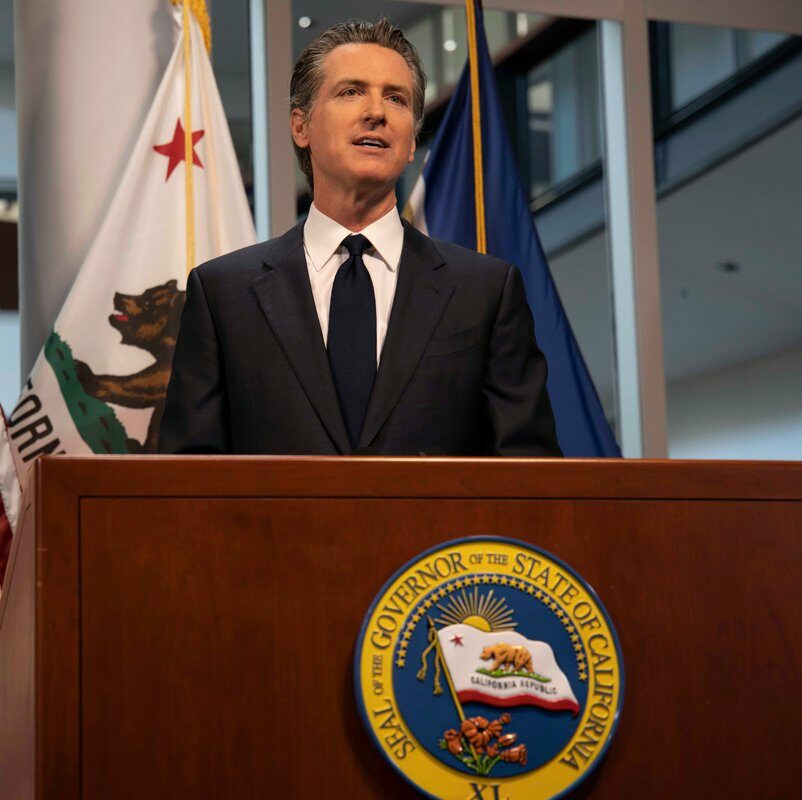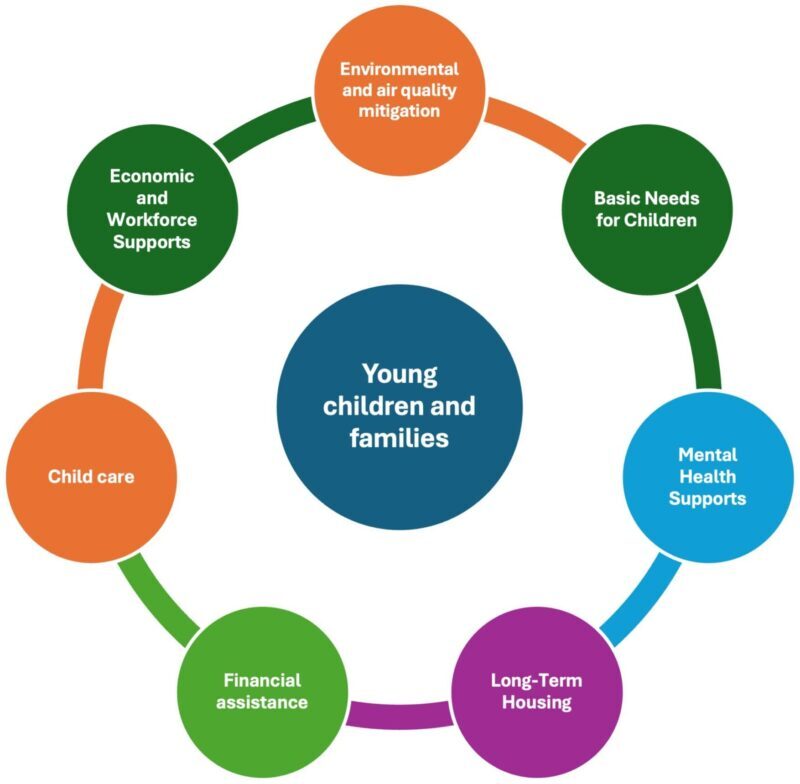March 27, 2025
Nancy Hurlbut is an emeritus professor in Early Childhood Studies at California State Polytechnic University, Pomona. She earned her Ph.D. in Life-Span Human Development from the University of Wisconsin, Madison. For over 45 years, she has been a faculty member and administrator in Early Childhood Education/Child Development (ECE/CD) in two countries and four U.S. states. She has been the director of a large CD Center at which she developed its first kindergarten classroom. She was also coordinator of the Early Childhood (EC) Credential Program in a large midwestern university. Nancy has been the dean of Education at two California State Universities and a member of many California workgroups that developed statewide standards and policies for ECE. Her research focuses on children’s social-emotional and cognitive development and lately on advocacy and policy development. She has received multimillion in grants supporting EC.
Nancy’s passion is providing opportunities for all students and faculty to be successful and has worked to transform higher education to develop anti-racist policies and curriculum. While at Cal Poly Humboldt, she collaborated with Round Valley Indian Tribal members and the Hoopa Valley Tribal members to support their educational requests. While at Cal Poly Pomona (CPP), she led the development of the first CPP Early Childhood Studies degree program which then became the first California baccalaureate program to be nationally accredited by the National Association for the Education of Young Children.
What inspires you as a woman educator, mentor and leader?
I am inspired by watching young children and marvel at their joy for life, their enthusiasm, curiosity, and honesty. Watching the resilience of so many children and young adults who face many challenges and yet continue to show strength and hope. I am also inspired by the strength and love of my own children and my mother, as well as my friends and colleagues who passionately work endless hours to support children and families.
As I reflect, I believe my temperament and childhood shaped my leadership style and inspired me to become an educator and mentor to women. As a child, I grew up in a single-mother family, which was very unusual in the 1950s, which contributed to me feeling different than other children. I also moved a lot, and in new places, I often spent time observing other children. As I observed them, I remember feeling that I could learn so much from others and, at the same time, show concern for how some children were being treated by other children.
I also remember some teachers being very authoritarian, and I watched children fail from their approach. I was also very good at math and was the only girl in my high school who took both calculus and physics, so again, I felt different than others. I also recall being told numerous times that “I should act more like a girl.” All of these and other experiences inspired me to believe that no one should be suppressed because of gender, culture, ability, or diversity. Every time I personally felt or observed gender prejudice or other biases, I became even more determined to work to secure a country that provided more opportunity for amazing women. This led me to become a teacher, mentor, and advocate. Throughout my career, I kind of fell into leadership positions and saw these as opportunities to support professional opportunities for young, talented professionals.
In times of struggle, I am inspired and regain hope from my colleagues and my belief that we can make a difference in the lives of children. I am also inspired and amazed by the young colleagues I know. There are so many amazing young women who continue to teach me so much and have so much to offer the world. I am inspired by their diversity of thinking, their skills, and their resilience.
My inspiration is guided by the hope that I leave a world that offers young women more opportunity than I had.
Over your career of shaping future early educators, how do you inspire them to be the best educators they can be?
I believe that, first and foremost, I inspire future early educators by trying to be the best EC professional I can be, by being honest about what I believe, and by being resilient. I model an ability to show courage to stand up for my beliefs, the strength to stand up for others, and resilience in the face of setbacks.
I also believe that how one treats others is a key to inspiring them. I believe that I inspire others by trusting and honoring them and by providing a safe space for all EC professionals to express their strengths and to experiment with their creativity. Honest collaboration and communication have been keys to my success in building trust and inspiring others. These are all important traits for an EC professional.
I have often said that I lead from behind. By this, I mean that I listen to others and participate in self-reflecting discussions before important decisions are made. This is in contrast to beginning a discussion with a predetermined solution. Through self-reflecting discussions, we are all leaders in decision-making. I believe this inspires others to be leaders in early childhood.
I express clarity in my vision that supporting all children and families is my underlying goal in all that we do as professionals. I also impress upon students and other professionals the importance of knowing the literature, theories, and strategies in order to create the best education for young children. It is through this knowledge and self-reflection that one can continually inspire others to be the best early childhood professional.
I motivate professionals to be the best EC educator by providing professional development opportunities to continue learning, by working with them on advocacy projects, by writing collaborative grants and papers, and through feedback from observations. This encourages other EC professionals to explore opportunities they may not otherwise explore.
Modeling strong EC professional leadership and providing environments that offer EC professionals opportunities to learn and practice in a safe environment are two important ways I inspire others to be the best EC educators they can be.
What traits do you believe are most essential for an early educator to have to inspire their young students?
The key trait of an inspiring early childhood (EC) teacher is that their focus is on children’s success instead of on THEIR teaching. Their guiding principle of teaching is “how do children succeed.” Inspiring teachers provide a welcoming and caring environment for all children—one that celebrates and honors diversities of all types, such as ability, culture, and language.
Key traits are authentic empathy, passion, and dedication to work with young children. This is challenging work with low wages, so passion and dedication are essential. Empathy for each child and passion for teaching young children help maintain enthusiasm in both the teacher and the children, which is an important trait in inspiring students.
Building relationships with children and their families is a key role of EC teachers who want to inspire children. In order to do this, teachers need to have strong communication skills and empathy for others. These communication skills require flexibility in thinking and a genuine sense that communication is collaborative and two-way. Also, a teacher needs to approach families as partners in the child’s success. In order to do this, a teacher needs to honor diversity and to support dual/multilingual children and their families. These traits are both attitudinal and behavioral skills.
Beyond these attitudinal/behavioral skills, inspiring teachers of young children need to have a strong knowledge of child development (CD) content, theories, and how to go from CD theory/content to teaching strategies. This knowledge provides the basis for a strong teaching philosophy and pedagogical strategies focusing on all children being successful.
Inspiring teachers make the job look easy and are organized. They also understand that working with children requires creative flexibility in one’s curricular plans, so they are flexible. Besides having flexible organization, inspiring teachers are creative and inspire creativity in one’s children. Creativity relies on a classroom environment that honors diverse approaches and provides an environment in which students feel they can risk “not being right” and still feel successful. In fact, failure is seen as a valuable learning experience. Teaching is also a partnership with others (e.g., parents and other professionals such as an audiologist, etc.). Inspiring teachers know when and from whom to seek additional support.
In conclusion, inspiring teachers’ core focus is on children’s success. They honor diversity, welcome all children, are empathic, are passionate and dedicated, have strong communication and collaboration skills, build relationships with their children and families, understand child development content and theory, have pedagogical strategies, are organized, flexible, and creative. An inspiring teacher works with others and is self-reflective with the aim of always improving. These traits are key to inspiring children; however, it feels as if I have only covered the visible part of the iceberg. There is so much more.
To end, an inspiring teacher is not an authoritarian. They are an inspiring leader who fosters children’s autonomy, engagement, and high positive self-esteem.
You have a unique role in influencing future generations. If you could name one quality you’d like for young children in an early education setting to leave with, what would it be and why?
There are so many qualities that I would hope a young person would leave an EC setting with to be successful. One overarching, important quality with which I would like to see all young children leave an ECE setting is a high, positive self-esteem. This would mean that children believe that they are worthwhile and would, more or less, accept who they are as a person. Children with a high, positive self-esteem are accepting of their strengths and are not haunted by their challenges.
In fact, they believe in their ability to conquer challenges. High positive self-esteem is different than inflated self-esteem, which is an unrealistic self-esteem. Having a positive sense of self is important, as it can be a shield allowing children to approach their developmental tasks with more zeal. Studies have shown that a high self-esteem correlates with success in school subjects and success in building strong peer friendships, to list a few outcomes. To conclude, building a child’s high self-esteem is one of the most important outcomes in an early childhood setting.








